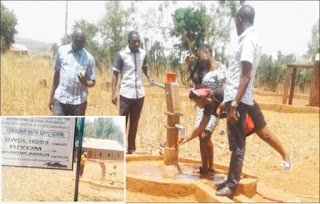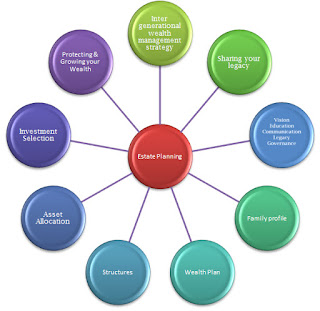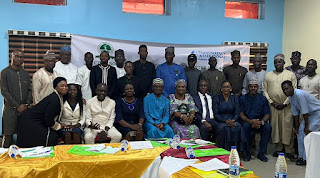Access To Safe Water Still A Challenge In Nigeria
Despite interventions by the United Nations
Children’s Fund (UNICEF), access to safe water and adequate sanitation in
Nigeria, eludes several communities, a situation that will demand collaboration
among governments, the private sector and communities writes CHIOMA UMEHA who
just returned from Bangai in Riyom Local Government Area of Plateau.
“At 12, Sarah Danjuma’s dream was to become a
doctor. She once told me she would
help poor villagers who could not afford treatment. Think of the irony, we lost
her due to lack of access to safe drinking water and poor hygiene,” said Mrs.
Victoria Gyang, Head Teacher, Community Primary School, Bangai Local Education
Area in Plateau State in a chat with DAILY INDEPENDENT.
“Sarah was an orphan and a Primary Three pupil being
raised by her relatives. Her parents died during the 2008 crisis.”
The Head Teacher bemoaned deaths of many Bangai
children from water-borne diseases.
She said, “Sarah was old enough to say what she
wants to be in future. Many of the children die before the age of five and
their destinies are buried with them.”
Bangai is one example of hundreds of communities
in Nigeria where access to safe water, adequate sanitation and hygiene
facilities is still lacking.
Bangai is in Riyom Local Government Area of Plateau
State.
Many people in the area practise bad hygiene,
including open defecation. But, when the United Nations Children’s Fund
(UNICEF), sensitised the populace
to the dangers of poor hygiene, they decided to turn a new leaf.
The strains, crisis and tragedies of lack of
access to safe water, adequate sanitation and hygiene facilities in Bangai
sounded like a bad storyline when Gyang spoke to DAILY INDEPENDENT.
She said, “We often had emergencies as children
were often coming down with waterborne disease such as cholera, diarrhoea,
among others.
“Then, it was common to see us run helter-skelter
to administer first-aid treatment on them. They got infected while defecating
in the bush without washing their hands. Only few survive the infection.”
The Head Teacher, while grieving over the effects
of the galling problem of poor water and sanitation, stressed that the
situation was worsened by growing insecurity, especially among children.
She said, “But there is also a big challenge that
we face here: daily we keep having children drop out of school owing to one
issue or the other, one of which is security, because of the many crisis we
have experienced in this community in the past 15 years.
“Most of the children are orphans and when there
is nobody to sponsor them in school again they drop out; and they really need
help because they all have potential to be somebody in the future.
She added, “Most of the children in this school
stay with their relations, while some even live with strangers.
“You know if a child is not your own, the passion
to really take care of such child will not be there.
“I am a mother and I know what I am saying. A look
at their uniforms alone could be very telling.”
Investigations show that both adult and children
in many of the low and middle-income communities in Plateau State indulge in
the revolting practice of open defecation and general poor hygiene until
recently.
Many people in Riyom LGA were still unschooled in
basic hygiene practice when young Elizabeth, a 10-year-old pupil of Bangai
Primary School, suffered from typhoid infection.
According to Gyang, “Elizabeth survived severe
abdominal pain, with liver and spleen enlargement that she gave up schooling.
“Her poor guardian, a widow and farmer, is still
clueless about how to meet her educational expenses.”
Elizabeth, like many other children in Bangai,
hardly has access to safe drinking water, hygienic toilet and soap.
Even when they have access to clean water and
soap, many children simply forget to wash their hands, despite regular
demonstrations and monitoring.
“Water used to be so dirty and unsafe in many
places in this area,” said Gyang.
“Hence, under these circumstances, it is very
difficult to practise good hygiene.”
Drinking of impure water can cause waterborne
diseases that could be harmful to the health.
Some of the diseases caused by polluted water are
cholera, diarrhea, typhoid, dysentery, lead poisoning, polio, malaria, cancer,
hepatitis and food poisoning.
However, all these have changed in Bangai with
intervention of the European Union (EU) funded UNICEF programme.
The EU and UNICEF project did not only provide
boreholes for the villagers and the school, but has also built a modern toilet
for the school.
So far, the facilities have started to improve
hand-washing compliance as well as water and sanitation standards in the
school.
The pupils, in turn, have become change agents, as
they spread the good news to their parents, educating them of the benefits accruable
from such practice.
Explaining measures which are taken to ensure that
all pupils in Bangai Primary School use the toilet and do not defecate in the
bush, Catherine John, Toilet/Health Prefect said, they often discipline those
who defecate in the bush to serve as deterrence.
“We flog those that still go to toilet in the bush
and ask them not to go to the bush again.”
Concerning maintenance of hygiene in the toilets,
Catherine said; “We ensure that the toilets are locked and whoever wants to use
it often requests for the key to gain access to it. The reason we lock the
toilet is to ensure that they flush it after use.”
As at the time DAILY INDEPENDENT visited Bangai in
March, the community has embraced good hygiene.
Commenting on the development, Yakubu Bwede,
Bangai Community leader, said they have gradually but steadily embraced the new
changes.
He said the community has decided to make it
mandatory for every household to provide toilet facility.
According to him, “Those who do not comply with
this directive, which is monitored periodically, are fined N2, 000 as penalty
for not doing so.
“Such money collected is used to provide public
toilet for the community so that everyone could be part of this life-saving
intervention from UNICEF.
“This has reduced incidences of death occasioned
by bacteria-induced infections by over two-third. And we are grateful to
EU/UNICEF.”
Burden of unsafe water and poor hygiene in Nigeria
Safe water, adequate sanitation and hygiene
facilities are critical to the survival, growth and well-being of the child.
This is because safe water is essential for life and sanitation. Good hygiene
also enhances good health.
In Nigeria, however, access to clean water and
sanitation is generally improving – but at a slow pace.
The recent Multiple Indicator Cluster Survey
(MICS), conducted by the government in 2016/17 indicated that about 40 per cent
of households and over 69 million people do not have access to clean water in
Nigeria.
UNICEF made this revelation as Nigeria joined
other nations to mark the International World Water Day, which holds annually
on March 22.
The day is set aside to focus attention on the
importance of safe water and for advocating for sustainable management of safe
water resources.
In the rural areas, according to the survey, 19
million people walk long distances to fetch unsafe water from lakes, streams
and rivers.
Water-borne diseases and childhood deaths
However, UNICEF indicated that children without
access to safe water are more likely to die in infancy or during childhood from
waterborne diseases.
It added that diarrhea remains the leading cause
of death among children under the age of five in Nigeria.
It said, “Lack of safe water and sanitation makes
children vulnerable to other threats beyond health. Many children in rural
areas spend many hours daily fetching water, thereby missing out on the
opportunity to go to school. “Waterborne diseases also contribute to stunting
of growth in children. A stunted child is shorter than she or he could have
been and will never be able to reach her or his full cognitive potential.”
UNICEF Chief of Water, Sanitation and Hygiene
(WASH), Nigeria, Zaid Jurji, stressed, “Improving water and sanitation services
as well as basic hygiene practices in Nigeria calls for a strong commitment
from all partners – the government, the civil society, the private sector and
communities.
He added, “For Nigeria to achieve the global goal
of providing access to safe water for every citizen by 2030, it needs to make
water, together with sanitation and hygiene, a national priority. This goal is
closely linked with three key results for the country – good health,
environment sustainability and economic prosperity.”
UNICEF, in collaboration with the federal, state
and local governments, has provided safe water in the past five years to over
eight million Nigerians living in rural areas.
But, access to potable water, according to the
world body, remains a challenge to the majority of Nigerians, especially those
living in the rural areas.
But, again, the EU/UNICEF programme in Bangai has,
somewhat, solved the irritating problem of open defecation in the community.
Open defecation and SDGs
When news broke recently that Nigeria was ranked
third among countries of the world where people still practise open defecation,
many could not believe the report.
However, given the source of the report, it was
difficult to fault.
Jurji gave this indication when he visited Katsina
State late last year.
“The situation of sanitation in Nigeria is
alarming. Nigeria is third worldwide when it comes to open defecation,
one-third of the population practise it,” he said.
“Nigeria is a heavyweight nation, not only in
Africa, but worldwide. It does not go well to know that open defecation is
being practised widely in the various communities in a country like Nigeria.
So, we need to do something about that beyond the traditional approach to
improving on the situation,”
The UNICEF WASH chief said his organisation would
continue to provide funds that would be merged with counterpart funds from
state governments to render the much needed services.
He urged leaders and other stakeholders to
intensify efforts toward enlightening people on the dangers associated with the
ugly trend.
Jurji said that eradicating open defecation would
also assist in improving sanitation, being one of the Sustainable Development
Goals (SDGs).
He stressed the need for every household to ensure
installation of a standard pit latrine, at the very least.
Incidentally, this is not the first time Nigeria
will be occupying the top spot in open-defecation ranking among affected
nations in the world.
The country first occupied the top spot in an
earlier ranking done in December, 2016, according to WaterAid, an Infographic
international charity, focused on improving access to safe water, hygiene and
sanitation.
Open defecation is the practice of people
excreting outside and not into a designated toilet. The term is widely used in
literature dealing in water, sanitation, and hygiene issues in developing countries.
Another report released by leading medical
journal, Public Library of Science (PLoS) Medicine, revealed that poor
sanitation and unsafe water, as well as bad hygiene, lead to the death of more
than two million children annually or almost 20 per cent of all child deaths
worldwide.
Quoting the study, UNICEF said almost one-fifth of
the world’s population still defecated in the open in 2010, with 2.6 billion
people not having access to basic toilet facility.
“Children are dying every day from diseases, such
as diarrhea, even though we know how to prevent them,” said Clarissa
Brocklehurst, chief of water and sanitation for UNICEF.
“We must work hand in hand – health professionals
alongside engineers – to ensure that improvements in water supply, sanitation
and hygiene reach everyone.”
UNICEF noted that diarrhea, cholera, typhoid and
other diseases can easily be prevented with cheap and proven interventions such
as pit latrines and hand-washing with soap.
Regardless, progress has been ‘painfully slow’ in
many developing countries, the organisation said.
A gram of faeces carries10 million viruses
Many living in houses without identifiable toilets
are compelled to defecate in open spaces, such as dumpsites and on the bank of
slowly flowing streams and rivers.
The evidence is everywhere. Nigeria appears to be
one huge field, where people defecate, without shame, and without putting into
consideration the impact of their action on the health of others.
Drissa Yeo, Head, Bauchi field office, including
Gombe and Plateau States and UNICEF WASH specialist, who also explained the
implication of diseases such as E.coli.
Yeo said: “You can easily get your food and
drinking water contaminated even though it is coming from a borehole.
This is where E.coli comes in. “One will say ‘I
have defecated there; it is not close to my house’ but when the wind blows,
there is no border. One of the biggest transporters is the fly,” he said.
The UNICEF WASH specialist added, “The fly can
land on it and bring it back to the household. When the fly perches on it,
automatically, it is either shitting or pissing. Whatever it has transported it
will deposit it there.”
The health implication is that you can easily get
your food or water contaminated, he stressed.
“A gram of faeces it is transporting means it has
left behind him about 10 million viruses. You can imagine if you swallow one of
the viruses, you are already contaminated, Yeo further explained.
“In those viruses also, the same gram will contain
one million of bacteria. The bacteria if they get into your stomach you can get
easily infested, that is one of the main big issues with open defecation.”
Regretting that people are yet to understand where
typhoid is coming from, Yeo said such contamination would lead to diarrhoea and
typhoid, “ An individual could also get Hepatitis E and A. There is a big
health implication when it comes to open defecation.
“Diarrhoea is one of the main-killers in the world,
today if you get contaminated with cholera, and you did not receive the
appropriate treatment in the next 24 to 48 hours, you can pass on. Dysentery can give you some time
to take care of yourself but not cholera.”
Meanwhile, UNICEF has said that in order to
effectively check open defecation in different parts the country, the Federal
Government will need to invest about $8.3 billion.
According to the joint UNICEF and the World Health
Organisation (WHO) report, lack of toilets remains one of the leading causes of
illness and death among children.
The report said that diarrhea, a disease often
associated with poor sanitary condition, and respiratory infections resulting
from poor hygiene, kill over 400,000 children, under the age of five, annually.
“These are largely preventable with improvements
in water, sanitation and hygiene,” said Yeo.




Comments
Post a Comment